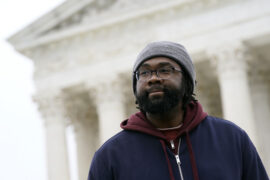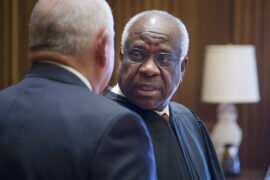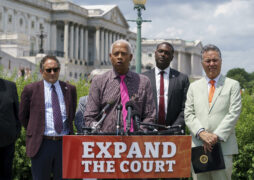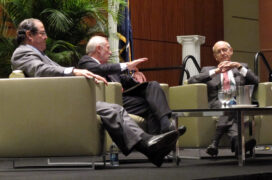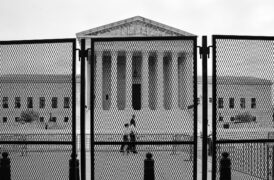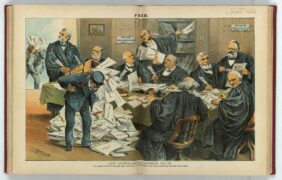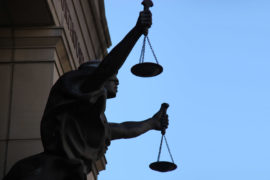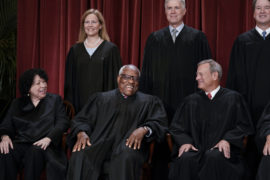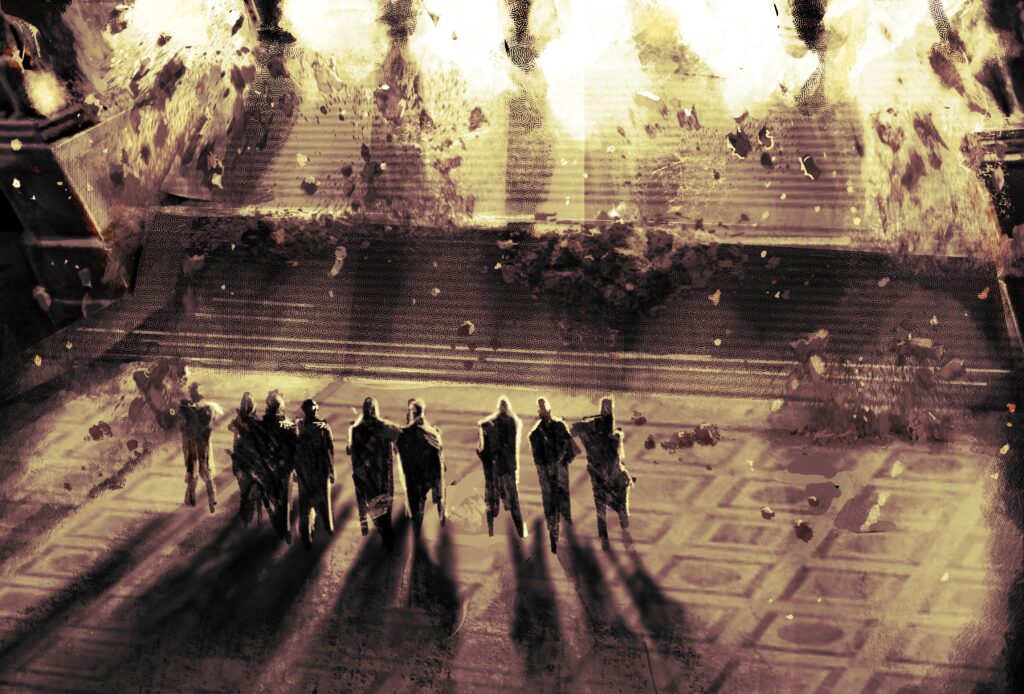 Illustration by Vincent Barbre
Dig
Illustration by Vincent Barbre
Dig
The Supreme Court’s War on the Future
This Dig investigates the political and ideological capture of the Supreme Court by the GOP and its dark-money donors. After chronicling the legal doctrine of "originalism" and its influence in pulling the country backwards, this series explores how Americans can reclaim the Court in the name of our rights, our liberties, and our democracy. A Dig curated by Bill BlumPart II: It Will Take a Political Movement to Reform a Politicized Supreme Court
It is time to revive Franklin Roosevelt’s court-expansion plan in defense of democracy and the rule of law.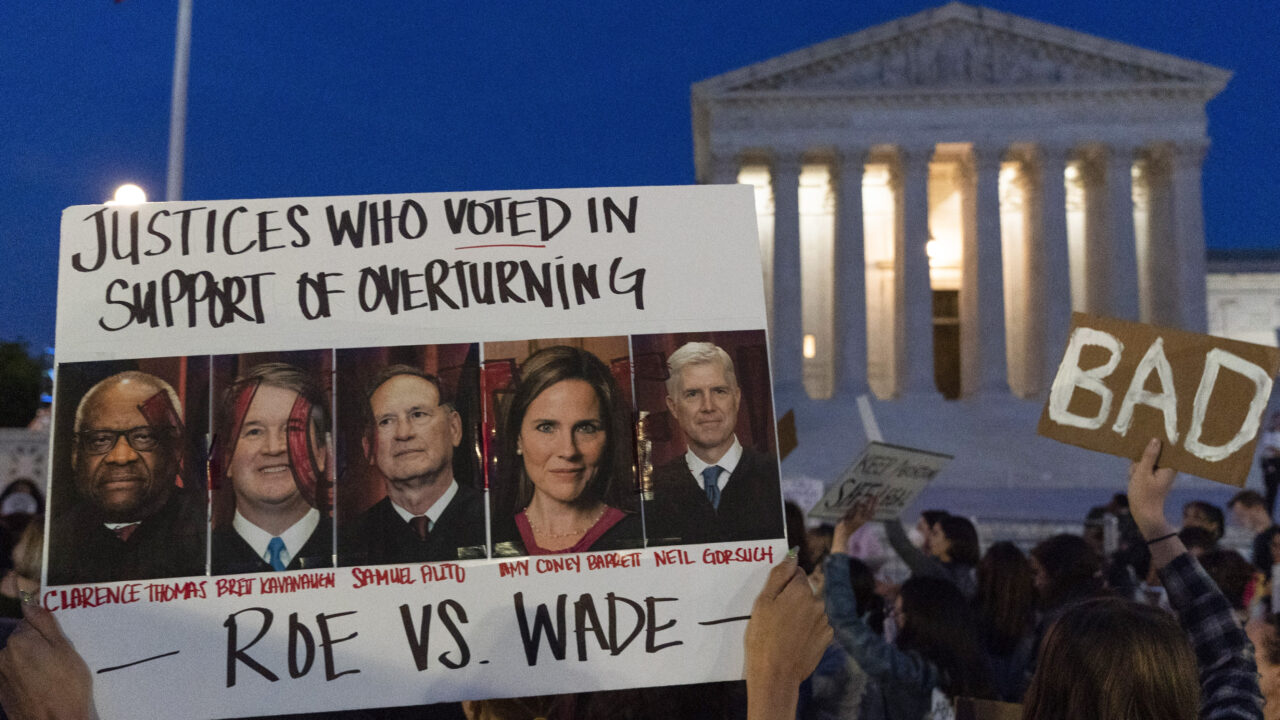 FILE - Nikki Tran of Washington, holds up a sign with pictures of Supreme Court Justices Thomas, Kavanaugh, Samuel Alito, Amy Coney Barrett, and Neil Gorsuch, as demonstrators protest outside of the U.S. Supreme Court, Tuesday, May 3, 2022, in Washington. (AP Photo/Jacquelyn Martin, File)
FILE - Nikki Tran of Washington, holds up a sign with pictures of Supreme Court Justices Thomas, Kavanaugh, Samuel Alito, Amy Coney Barrett, and Neil Gorsuch, as demonstrators protest outside of the U.S. Supreme Court, Tuesday, May 3, 2022, in Washington. (AP Photo/Jacquelyn Martin, File)
This is the concluding feature story in the multi-part Dig series, “The Supreme Court’s War on the Future,” investigating how the Supreme Court was remade in the image of Robert Bork.
The radical right’s long crusade to capture the Supreme Court is over. Anyone who doesn’t realize this hasn’t been paying attention, or has imbibed the Kool-Aid served by Chief Justice John Roberts at his 2005 Senate confirmation hearing, when he promised to work as a neutral arbiter on the bench much like a baseball umpire, calling only “balls and strike, and not to pitch or bat.”
Dig deeper Dec 19, 2022Part I: Robert Bork’s Revenge
How the Supreme Court was remade in the image of the original Originalist.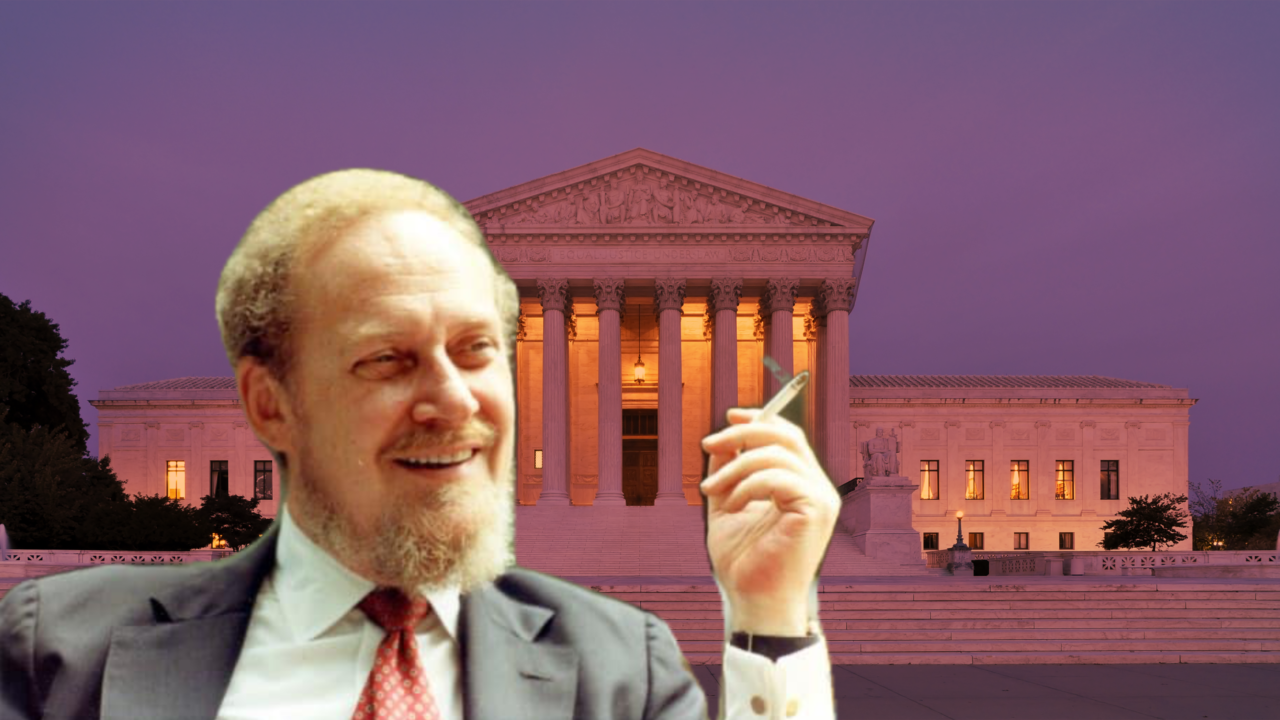
This is the first of a multi-part Dig series, The Supreme Court’s War on the Future, investigating how the Supreme Court was remade in the image of Robert Bork.
The Supreme Court and the Road to Minority Rule
We like to think of the Supreme Court as the guardian of fairness, protector of the little guy and upholder of the rule of law. It isn’t. With the exception of the Warren Court era and its immediate aftermath, throughout most of our history, the court has been the protector of the wealthy and the powerful, a defender of slavery (Dred Scott), racism (Plessy, Korematsu) and historical distortion (Heller on the Second Amendment). In the first article, I’ll explain how the Supreme Court has returned to its historical roots as an undemocratic, elitist and backward institution.
Dig deeper Dig Discussion
